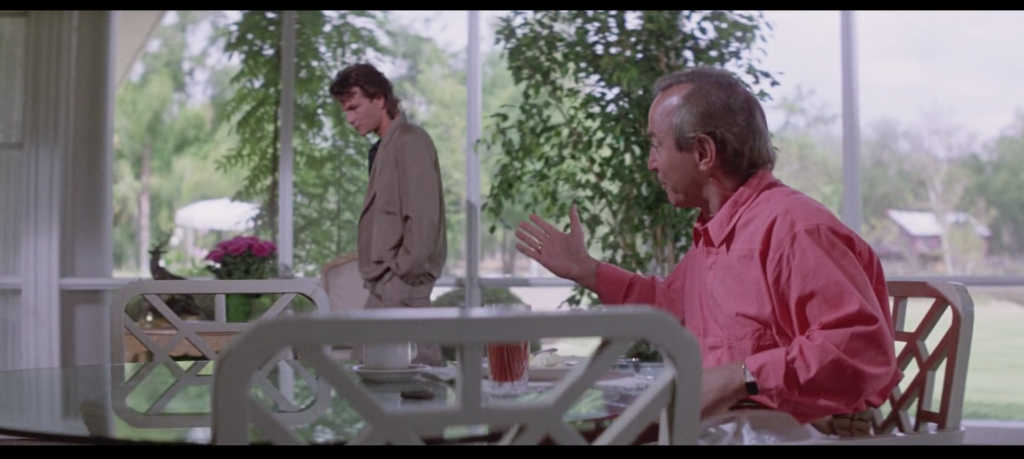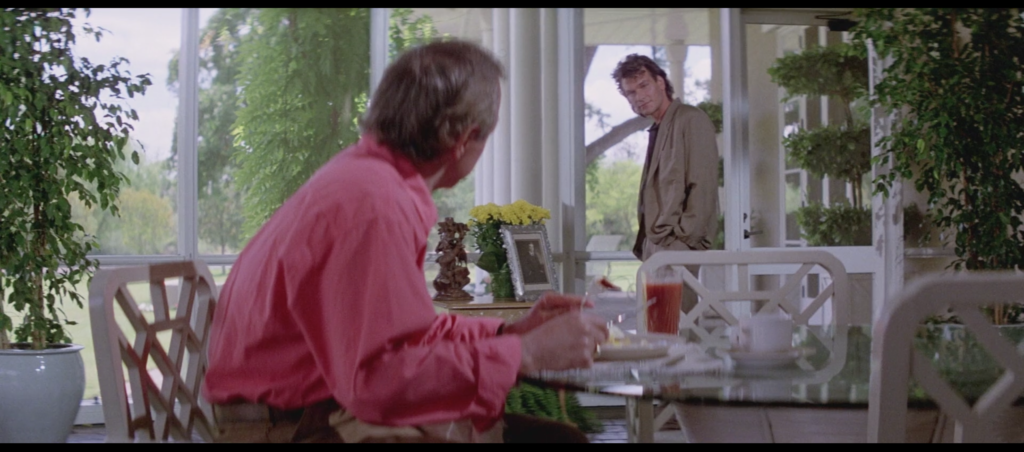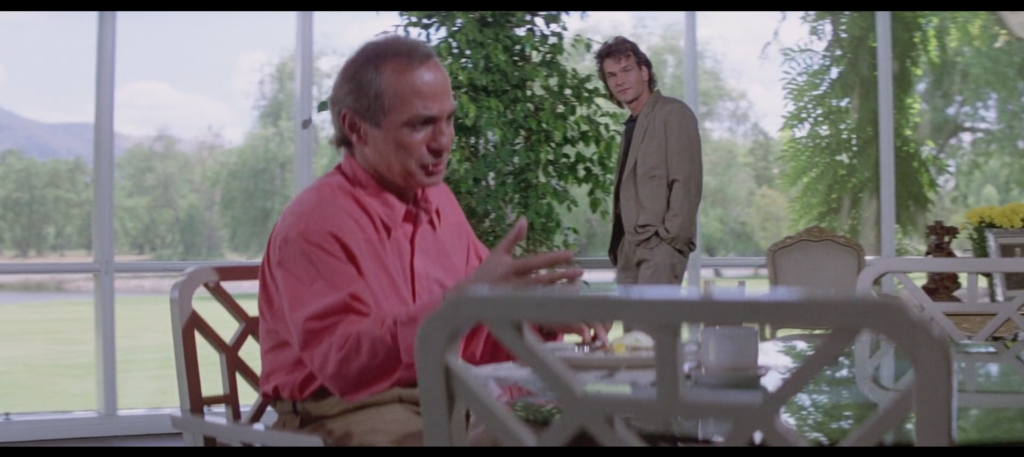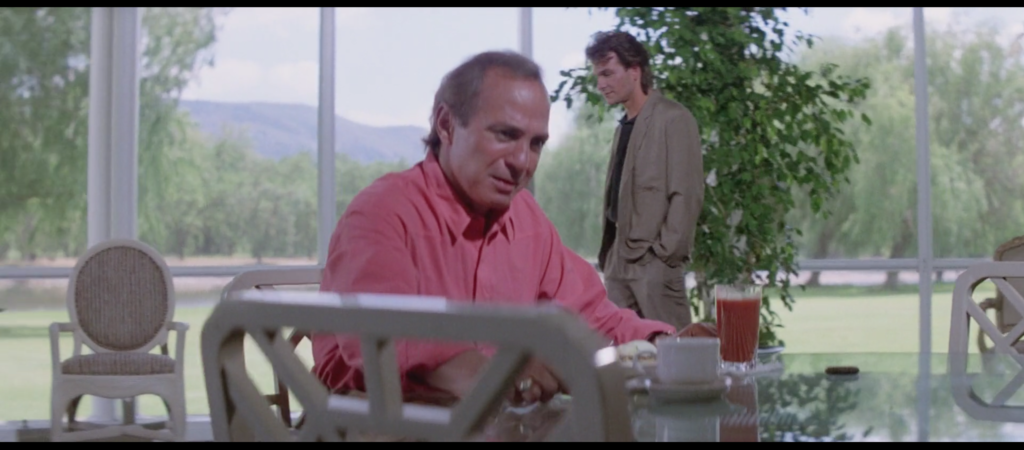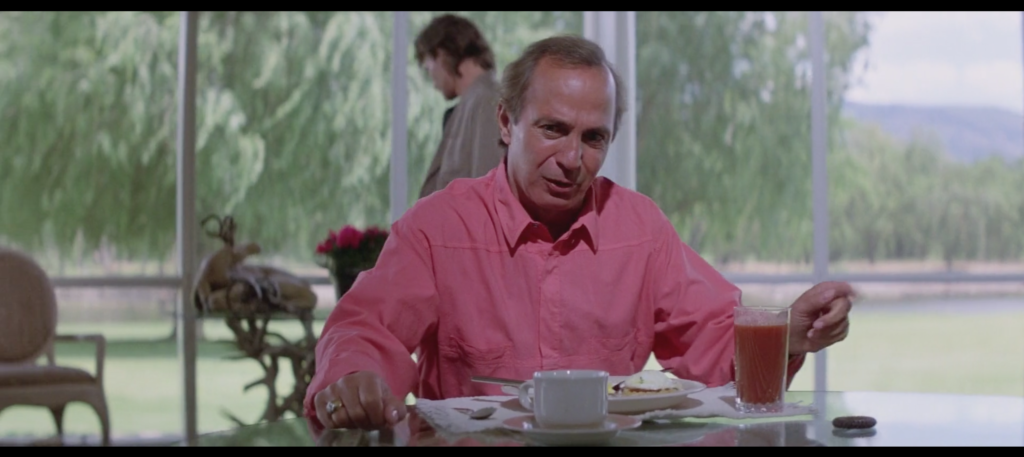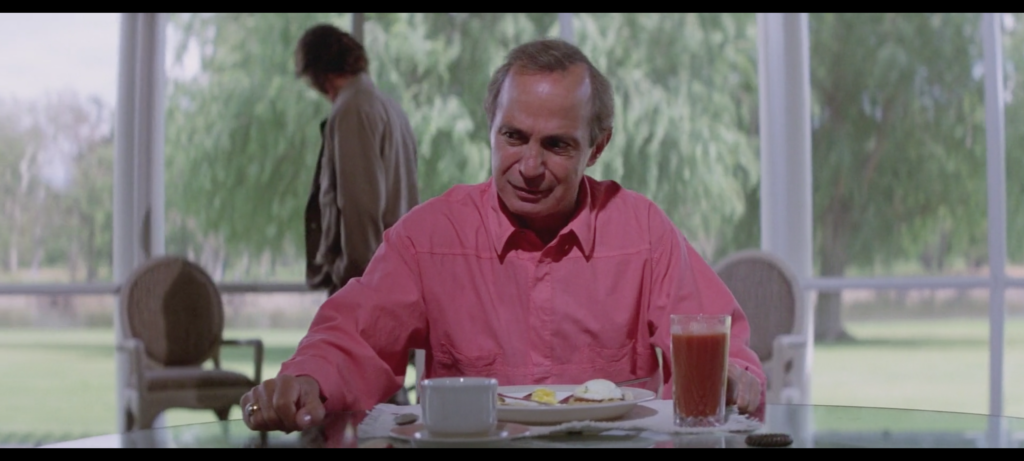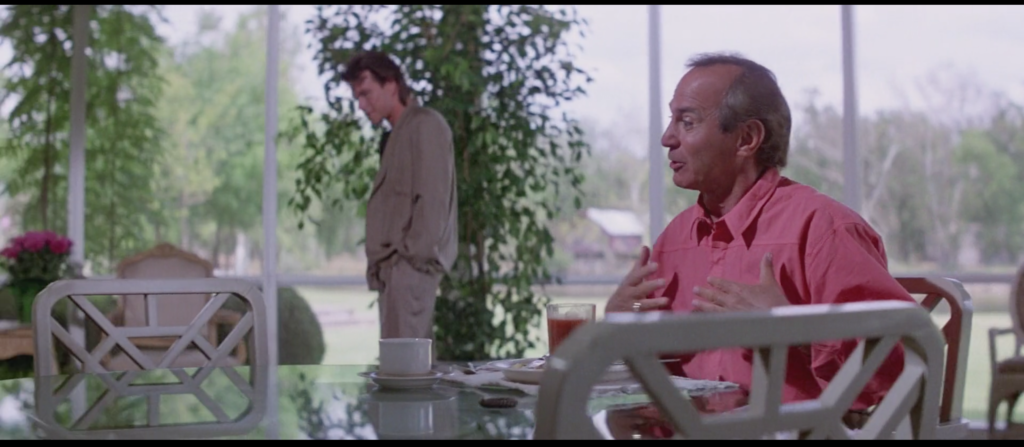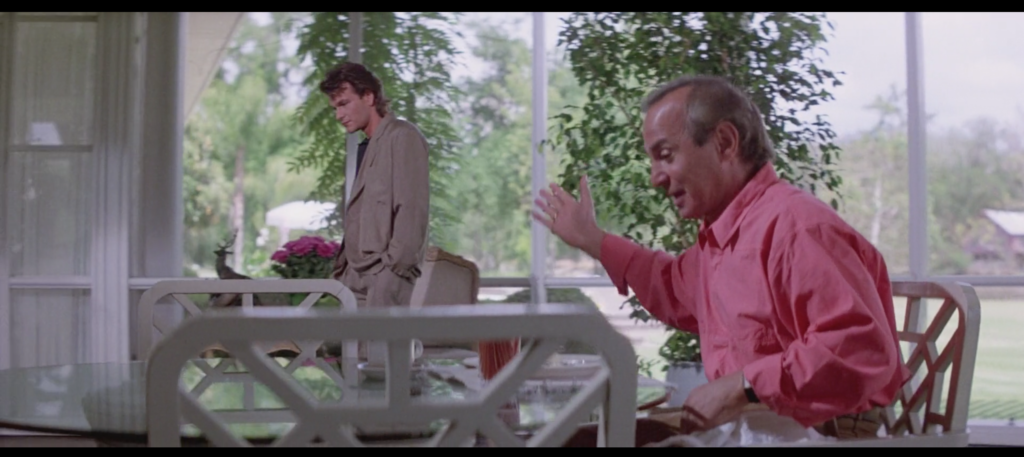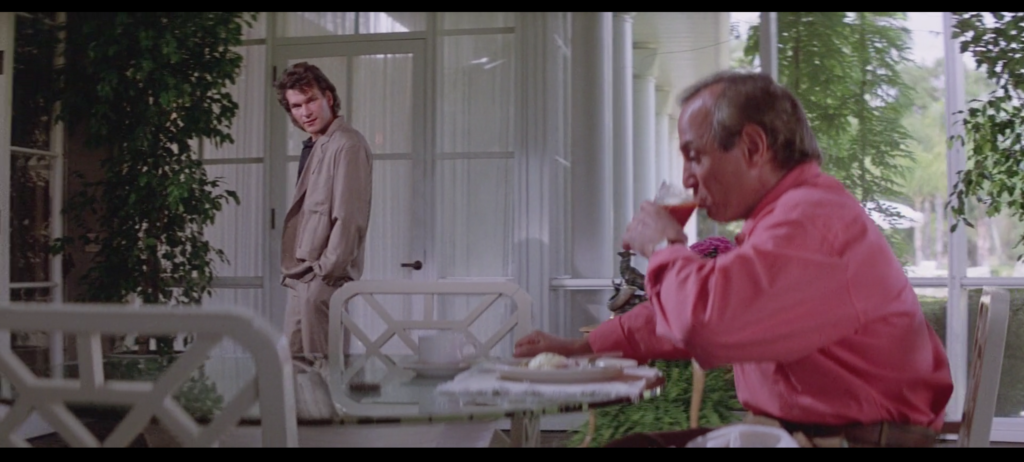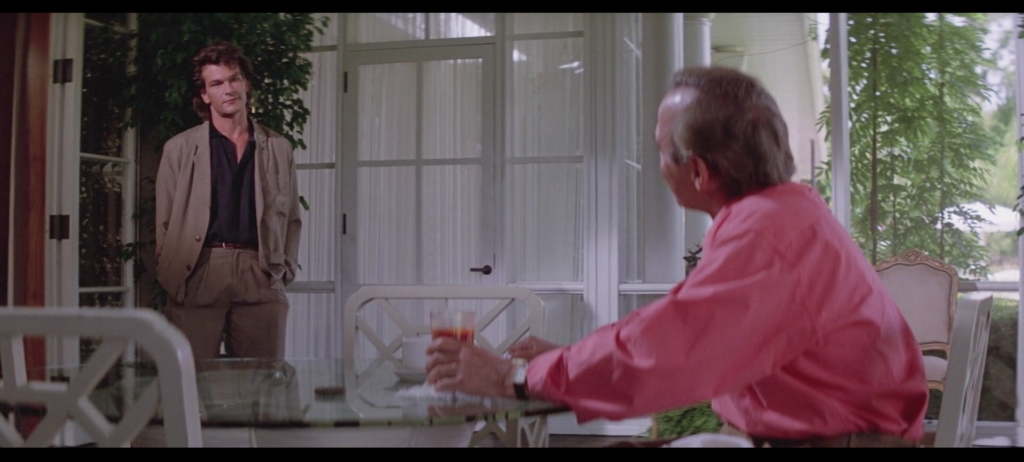Posts Tagged ‘jc penney’
177. “You ask anybody, they’ll tell you!”
June 26, 2019“Christ, JC Penney is coming here because of me!” gets all the attention, and for good reason. In Road House, the archvillain, a man who employs a small army of hired thugs to blow up buildings with recalcitrant old men in them, touts the arrival of The One-Day Sale—Storewide! as his greatest accomplishment. As my own summary goes, “Road House is the story of one bouncer’s quest to free a small town from the iron fist of the guy who is on the verge of opening the area’s first JC Penney. Over half a dozen men will die for this.” So I get it.
I prefer Casino to GoodFellas. Which is not to say I fail to recognize GoodFellas as Martin Scorsese’s masterpiece of mass entertainment, which I intend as a pure compliment. It’s the movie, not the kind of movie but the movie, that makes people fall in love with cinema. It’s like if the philosopher’s stone was rock candy. It’s a towering achievement. But I prefer Casino to GoodFellas because its interests are closer to my own. It’s grandiose, spectacular, it has a machine logic behind its narrative flow, it has pitiable characters and funny characters but no likeable characters, it’s brutally soul-crushingly violent, the music is maybe even cooler than the music in GoodFellas, it reads as a rejoinder to anyone who thought GoodFellas is about how much fun it is to be in the mafia, which may well have included Scorsese himself. It’s not the colossus GoodFellas is, but it stands taller in my heart.
I’m not sure if I’d go that far in describing the line that follows the JC Penney thing, which is “Ask anybody, they’ll tell you!” because let’s be honest, “Christ, JC Penney is coming here because of me” is the sound of my soul. But do not, do not sleep on that follow-up. Travel inside Brad Wesley’s mind and look out through his eyes at the town of Jasper, Missouri, and what will you see? A bustling hive of simple little people, buzzing with excited gratitude for what Brad Wesley has done for them, awed by its magnitude, eager to spread the good news. Brad Wesley envisions Dalton driving down the main drag, stopping in one of the town’s countless hole-in-the-wall bars and greasy spoons (Jasper is where Diners, Drive-Ins and Dives manifests Guy Fieri’s id as a tulpa), sidling up to one of the Four Car Salesmen, stopping people at the doors of the Double Deuce, grabbing any man jack off the street, chatting up any swinging dick he sees and getting the same response: “Oh, the JC Penney? It were Brad Wesley what done it.” Like Boromir or Samwise Gamgee contemplating a world in which the Ring gives them Command, Brad Wesley envisions the masses roiling with department-store ecstasy from sea to shining sea, his name rolling off their tongues like glossolalia. Children by the million sing for Brad Wesley bringing JC Penney to Jasper when he comes round. I’m in love. What’s that store? I’m in love with that store.
168. At the center of it all
June 17, 2019The speech in which Brad Wesley touts his accomplishments as a captain of industry to Dalton over breakfast and a Bloody Mary, revealing all of those accomplishments to involve the local establishment of downscale retail chains, is memorable for the obvious reason that this film’s chief antagonist says the sentence “Christ, JC Penney is comin’ here because of me!”
But that is not the only reason it stands out. Watch how cinematographer Dean Cundey (Jurassic Park, Who Framed Roger Rabbit?, Back to the Future, The Thing, Big Trouble in Little China, The Fog, Escape from New York) established Brad Wesley’s centrality to his own narrative by making him the center of the shot in which he spells out that narrative.
As Wesley rattles off his life story—coming up the hard way on the streets of Chicago, arriving in this nothing of a town after Korea, building it up into an empire of Fotomats, amassing both popular acclaim and a fortune in cash—the camera follows Dalton as he walks around Wesley at the perimeter of the round room in which he sits eating at a round table. It focuses on Dalton at the beginning of the journey, shifts to Wesley near the midpoint, and pulls back to Dalton at journey’s end. Their relative positions in the frame shift as well: Wesley starts at the left and winds up at the right, while Dalton does the opposite.
What is the purpose of this perspectival pas de deux, this theater in the roundhouse? To visually convey Wesley’s narcissism and his delusions of grandeur (which in the world of the film can be passed off for actual grandeur in a pinch). To emphasize the wary, hunter/hunted relationship between Dalton and Wesley, with their shifting focus and placement in the frame making it difficult to ascertain who is the predator and who is the prey. To show off the fancy house the locations team secured for the production. To give Ben Gazzara a platform on which to declaim without so much as having to stop eating his scrambled eggs. It is a truly accomplished shot, in the sense that it accomplishes a great deal. Is it any surprise that, depending on how one counts the opening and closing credits rolling over live band performances, it is at or near the exact center of the film?

